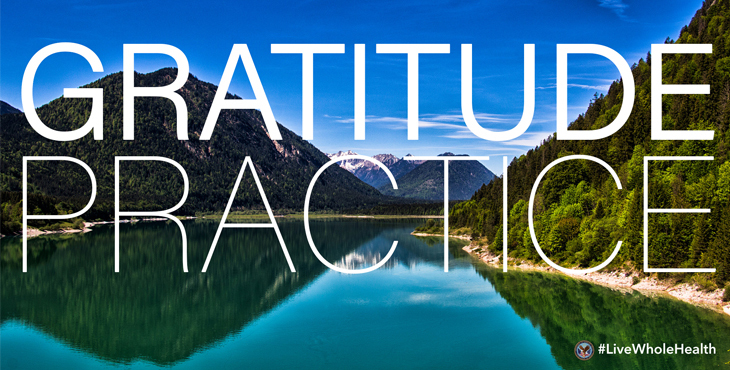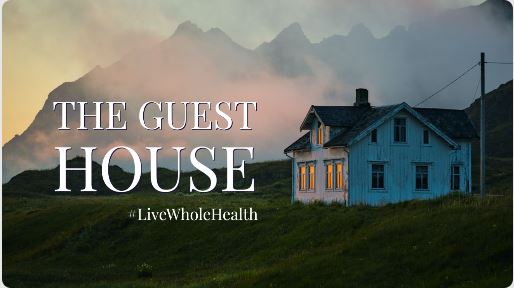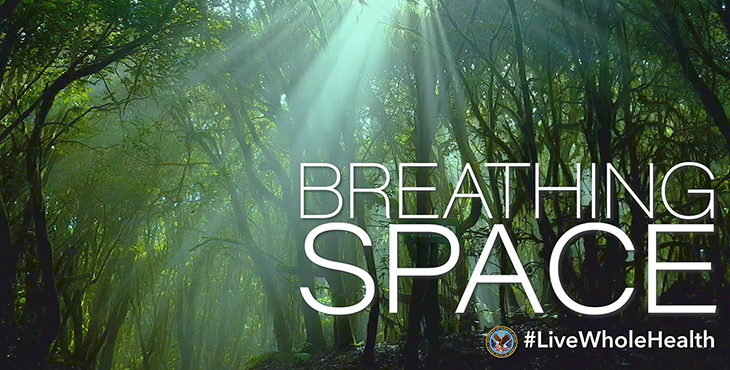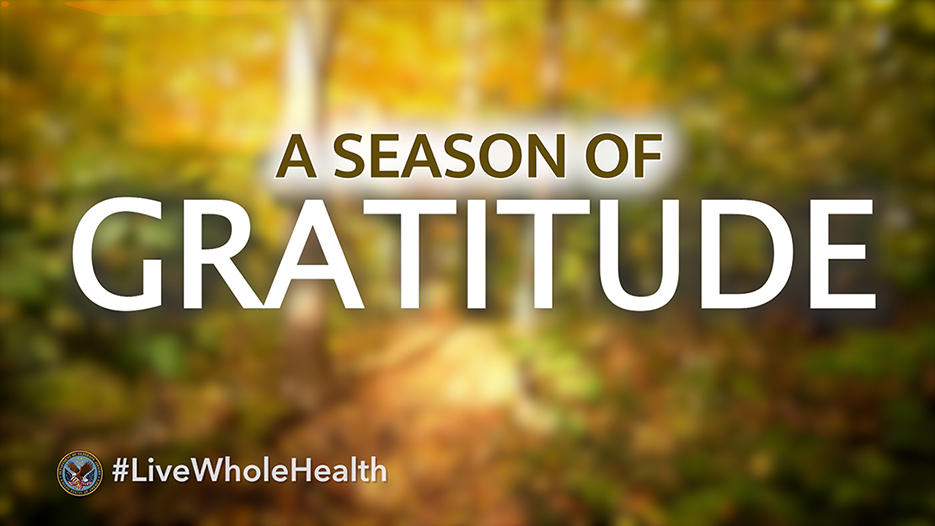What is gratitude practice?
Facing adversity is a natural part of the human experience. When situations arise and we find ourselves feeling fear, worry or anxiety, we often focus on those thoughts, losing sight of the people, places and things we are grateful for. Often we find ourselves thinking about what is not going well, or harbor negative thoughts throughout the day. Over time, those thoughts can impact our stress levels and our behavioral and lifestyle choices, including how we eat and sleep, or the relationships we choose.
Research has shown that taking time to think, feel or write about what you are grateful for can be beneficial to physical and mental health. In fact, gratitude practices have been linked to improved social connections with healthier relationships, improved physical health and movement, increased acts of kindness, decreased anxiety, decreased tendencies toward substance abuse, and improved sleep and energy.
Visit with Amy Honeck, occupational therapist from the Little Rock VA Medical Center. In this short video, you will learn more about the benefits of a gratitude practice, including how to decrease negative thoughts. You will also experience a relaxing gratitude meditation.
There are many ways to incorporate gratitude into your day, from taking a short pause to reflect on those that matter most to you, writing in a journal, or listening to an audio recording. Take time to find the one that works for you!
With so many benefits, why not give it a try? Encourage your friends and family to do it together. There is power in community uniting around gratitude. The more you include this in your day-to-day routine, even for just a few minutes, the more it will have long-lasting impacts on your well-being.
More information
For more information on the benefits of practicing gratitude as well as examples of ways to set up your own practice, visit the Whole Health Library at https://wholehealth.wisc.edu/tools/creating-gratitude-practice/.
Many people practice gratitude by giving back to their community; for them, this often means the Veteran community they have shared so many experiences with over the years. If you are interested in more volunteer opportunities with VHA, please visit: https://www.volunteer.va.gov/.
Kavitha Reddy, MD, FACEP, ABoIM, is a national whole health champion with the VHA Office of Patient-Centered Care and Cultural Transformation and Whole Health System Clinical Director for VASTLHCS.
Topics in this story
More Stories
Rumi’s "The Guest House" invites us to welcome each emotion as a teacher, even the unexpected ones. Listen and reflect for this week's #LiveWholeHealth practice.
Your breath is the most loyal friend you've always had. Connect, calm and heal with mindful breathing in this week's #LiveWholeHealth practice.
Gratitude is a light that shines through life’s ups and downs. Embrace gratitude this holiday season in just five minutes for this week's #LiveWholeHealth practice.






